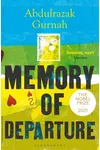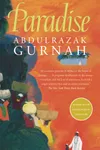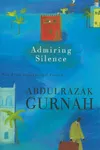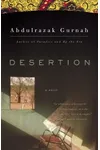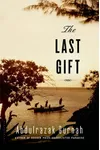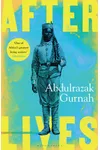Picture a Tanzanian storyteller weaving tales of exile, identity, and the echoes of colonialism—meet Abdulrazak Gurnah! Born in Zanzibar in 1948, this Nobel Prize-winning author has captivated readers with his poignant novels that explore the refugee experience and postcolonial struggles. His lyrical prose and compassionate lens make him a literary gem, shining light on lives caught between cultures.
The Making of Abdulrazak Gurnah
Abdulrazak Gurnah grew up on the vibrant island of Zanzibar, a cultural crossroads in the Indian Ocean. In 1964, the Zanzibar Revolution uprooted his life, forcing the 18-year-old of Arab heritage to flee persecution and seek refuge in England. This sense of displacement fueled his writing, which began as diary reflections to cope with homesickness. Gurnah pursued education at the University of Kent, earning a PhD in 1982, and later became a professor of English and postcolonial literatures, shaping his scholarly and creative voice.
Abdulrazak Gurnah’s Unforgettable Stories
Gurnah’s novels are a tapestry of memory, migration, and resilience. His breakthrough, Paradise (1994), a coming-of-age tale set in colonial East Africa, was shortlisted for the Booker Prize. It follows Yusuf, a boy navigating love and loss amid German colonialism. By the Sea (2001), longlisted for the Booker, weaves the lives of two Zanzibari refugees in England, exploring identity and betrayal. Desertion (2005) tackles forbidden love across cultures, challenging colonial narratives. His latest, Afterlives (2020), traces the impact of German rule in East Africa, blending history with human stories. Gurnah’s style—lyrical, introspective, and unflinchingly honest—draws from Swahili, Arabic, and English traditions, creating a unique voice that resonates globally.
His works reject simplistic colonial perspectives, centering indigenous voices and the complexities of exile. Whether it’s the sensory richness of Paradise or the melancholic depth of By the Sea, Gurnah’s novels invite readers into the hearts of those displaced by history. His short stories and essays, like those in Refugee Tales III, further amplify these themes, making him a master of postcolonial storytelling.
Why Abdulrazak Gurnah Matters
In 2021, Gurnah won the Nobel Prize in Literature for his “uncompromising and compassionate penetration of the effects of colonialism and the fate of the refugee.” As the first Black writer to win since Toni Morrison in 1993, his recognition marked a milestone for African literature. His novels illuminate the human cost of colonialism and migration, resonating in today’s world of displacement crises. Gurnah’s advocacy for humane refugee policies, rooted in his own experience, adds urgency to his work, inspiring readers to rethink borders and belonging.
About Abdulrazak Gurnah
- Born: December 20, 1948, in Zanzibar, Tanzania
- Key Works: Paradise (1994), By the Sea (2001), Desertion (2005), Afterlives (2020)
- Awards: Nobel Prize in Literature (2021), Fellow of the Royal Society of Literature (2006)
- Notable: First Black African Nobel literature laureate since Wole Soyinka in 1986
Snag Paradise or By the Sea and dive into Abdulrazak Gurnah’s soul-stirring postcolonial world! His stories will linger long after the last page.
